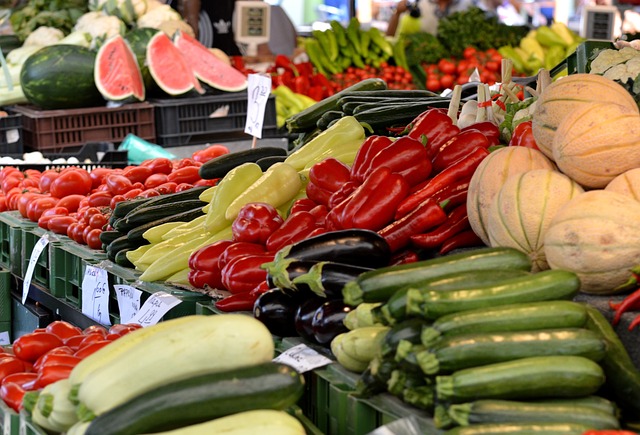Yard waste removal and recycling are crucial practices for maintaining ecological health, supporting sustainable living, and promoting a thriving landscape. Homeowners can enhance their yard waste management by separating organic materials and utilizing local composting services, which convert these into high-quality soil amendments. Employing on-site mulchers or chippers to process organic debris into mulch benefits garden beds and reduces the need for disposal. These actions not only minimize landfill use but also generate nutrient-rich compost that supports plant growth and soil health. Adherence to local guidelines, including proper containment and timing for yard waste pickups, ensures efficient utilization of these services. Residents should familiarize themselves with their waste management authorities' protocols, acceptance criteria, and collection schedules. By doing so, they can streamline the disposal process, embrace sustainable practices within the community, and contribute to environmental stewardship through responsible yard waste removal and recycling. These eco-friendly solutions, including mulching mowers, compost bins, and leaf vacuums with mulching attachments, offer modern, sustainable ways to manage yard waste, contributing to both local and global sustainability goals.
Spring and fall clean-ups generate significant yard waste, necessitating efficient disposal methods. Homeowners increasingly seek eco-friendly ways to manage this debris without compromising their landscapes’ health or the environment. This article delves into ‘Yard Waste Removal and Recycling,’ offering insightful strategies for effective collection and disposal, highlighting local programs, and showcasing innovative tools and techniques that facilitate the process. With a focus on sustainability and practicality, it equips readers with the knowledge to keep their lawns pristine while responsibly managing yard waste.
- Efficient Strategies for Yard Waste Collection and Disposal
- Understanding Local Yard Waste Recycling Programs
- Innovative Tools and Techniques for Effective Lawn Debris Management
Efficient Strategies for Yard Waste Collection and Disposal

Efficient strategies for yard waste removal are crucial for maintaining a healthy landscape and preserving environmental quality. Homeowners and property managers can optimize their yard waste collection by segregating organic materials like grass clippings, leaves, branches, and twigs from other types of waste. This separation facilitates the recycling process, as many communities offer specialized yard waste collection services that compost these materials into nutrient-rich soil amendments. To utilize such services effectively, it’s advisable to adhere to the guidelines provided by local waste management authorities, including proper bundling or bagging of yard waste and setting it out on designated pickup days. Additionally, using mulchers or chippers can reduce the volume of yard waste by transforming organic debris into useful mulch, which can then be applied to garden beds, thereby minimizing the need for disposal. By implementing these practices, communities can significantly improve their recycling efforts and contribute to a more sustainable environment. Yard waste recycling not only diverts large amounts of organic material from landfills but also creates valuable compost that supports plant growth and soil health, making it a win-win for both the ecosystem and gardeners alike.
Understanding Local Yard Waste Recycling Programs

When managing lawn debris, it’s crucial to explore local yard waste removal and recycling programs. These initiatives are designed to handle the organic matter generated from routine garden maintenance and seasonal clean-ups. By participating in such programs, homeowners can efficiently manage their yard waste without contributing to landfill congestion. Typically, municipalities offer specific collection schedules where residents can set out compostable materials like leaves, grass clippings, and garden trimmings. These programs often transform yard waste into nutrient-rich compost, which can then be used by local farmers or made available to the community for personal gardening purposes. Understanding the specific guidelines, acceptance criteria, and pickup schedules of these services is key to ensuring that yard waste is disposed of in an environmentally friendly manner. Homeowners should check with their local waste management authority to obtain detailed information on how to properly prepare and set out yard waste for collection, as well as to learn about any available drop-off sites for bulkier items or materials not accepted by the curbside service. Utilizing these programs not only simplifies the disposal process but also supports sustainable practices within the community.
Innovative Tools and Techniques for Effective Lawn Debris Management

Effective lawn debris management is a cornerstone of maintaining a healthy and well-manicured yard. As leaves, grass clippings, and other organic matter accumulate, it’s crucial to address this waste responsibly. Innovative tools and techniques have emerged to facilitate yard waste removal and recycling processes. For instance, mulching mowers efficiently break down grass clippings into finer particles that can be returned to the soil, enriching its composition and reducing the volume of waste. Compost bins and tumblers are also instrumental in converting yard waste into nutrient-rich humus for your garden, which supports plant growth and sustains soil health. Additionally, leaf vacuums or blowers with mulching attachments can vacuum leaves and other debris, shredding them into small pieces that decompose faster, thereby minimizing the space they occupy in landfills. These tools not only streamline the cleanup process but also contribute to a more sustainable approach to lawn care. Homeowners can leverage these advancements in yard waste removal and recycling to create a greener, more eco-friendly environment while keeping their yards immaculate. Implementing such practices not only benefits the local ecosystem but also aligns with broader environmental conservation efforts.
Effective yard waste removal and recycling are pivotal for maintaining healthy green spaces and protecting the environment. This article has explored a spectrum of strategies, tools, and techniques designed to simplify the disposal process. By leveraging local programs and adopting efficient collection methods, homeowners can ensure their lawn debris is responsibly managed. Embracing these practices not only enhances community cleanliness but also contributes to broader sustainability efforts. Homeowners are encouraged to familiarize themselves with yard waste removal and recycling options available to them, thereby fostering a greener, more sustainable future for all.
